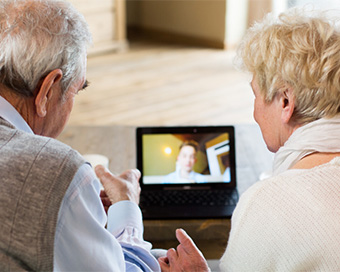Gallery
 PM Modi visit USA
PM Modi visit USA Only the mirror in my washroom and phone gallery see the crazy me : Sara Khan
Only the mirror in my washroom and phone gallery see the crazy me : Sara Khan Karnataka rain fury: Photos of flooded streets, uprooted trees
Karnataka rain fury: Photos of flooded streets, uprooted trees Cannes 2022: Deepika Padukone stuns at the French Riviera in Sabyasachi outfit
Cannes 2022: Deepika Padukone stuns at the French Riviera in Sabyasachi outfit Ranbir Kapoor And Alia Bhatt's Wedding Pics - Sealed With A Kiss
Ranbir Kapoor And Alia Bhatt's Wedding Pics - Sealed With A Kiss Oscars 2022: Every Academy Award Winner
Oscars 2022: Every Academy Award Winner Shane Warne (1969-2022): Australian cricket legend's life in pictures
Shane Warne (1969-2022): Australian cricket legend's life in pictures Photos: What Russia's invasion of Ukraine looks like on the ground
Photos: What Russia's invasion of Ukraine looks like on the ground Lata Mangeshkar (1929-2022): A pictorial tribute to the 'Nightingale of India'
Lata Mangeshkar (1929-2022): A pictorial tribute to the 'Nightingale of India' PM Modi unveils 216-feet tall Statue of Equality in Hyderabad (PHOTOS)
PM Modi unveils 216-feet tall Statue of Equality in Hyderabad (PHOTOS)Hockey India has announced a 54-member core probable squad for the upcoming senior men’s
- Satwik-Chirag return as BAI names 14-strong squad for BWF Sudirman Cup Finals 2025
- Men’s Sr Hockey Nationals to be played in division-based format from April 4
- Mensik denies Djokovic 100th title in Miami final
- KIPG: Son of a vegetable vendor, Bihar’s Jhandu Kumar eyes Worlds, 2028 Paralympics
- Hardik Singh credits hard work and team unity for receiving HI Midfielder of the Year award
Technology made elderly feel more lonely during pandemic: Study Last Updated : 26 Jul 2021 11:43:57 PM IST 
Staying in touch with friends and family via technology made many older people feel more lonelier and more depressed than no contact at all, researchers have research.
The study, led by researchers from the UK's Lancaster University, showed that many older people experienced a greater increase in loneliness and long-term mental health disorders as a result of the switch to online socialising than those who spent the pandemic on their own, the Guardian reported."We were surprised by the finding that an older person who had only virtual contact during lockdown experienced greater loneliness and negative mental health impacts than an older person who had no contact with other people at all," said Dr Yang Hu of Lancaster University."We were expecting that a virtual contact was better than total isolation but that doesn't seem to have been the case for older people," he added.The findings were published in the journal Frontiers in Sociology.The problem was that older people unfamiliar with technology found it stressful to learn how to use it. But even those who were familiar with technology often found the extensive use of the medium over lockdown so stressful that it was more damaging to their mental health than simply coping with isolation and loneliness, the report quoted Yang as saying."Extensive exposure to digital means of communication can also cause burnout. The results are very consistent," he said.The team collected data from 5,148 people aged 60 or over in the UK and 1,391 in the US -- both before and during the pandemic."It's not only loneliness that was made worse by virtual contact, but general mental health: these people were more depressed, more isolated and felt more unhappy as a direct result of their use of virtual contact," he said.Yang said more emphasis needed to be placed on safe ways to have face-to-face contact in future emergencies. There must also, he added, be a drive to bolster the digital capacity of the older age groups.The findings outlined the limitations of a digital-only future and the promise of a digitally enhanced future in response to population ageing in the longer term, he noted.IANS London For Latest Updates Please-
Join us on
Follow us on








172.31.16.186







